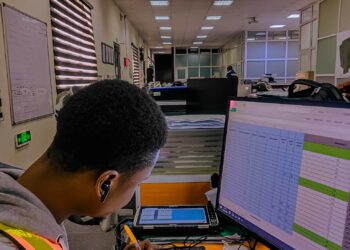Should Exam Digitalisation Be This Stressful?
The promise of digitalisation in education is to make processes faster, more efficient, and more accessible. It is meant to reduce stress, not multiply it. Yet, for many Nigerian families, the digitisation of the Joint Admissions and Matriculation Board (JAMB) Unified Tertiary Matriculation Examination (UTME) has instead become a source of unimaginable distress, danger, and despair. What was intended to simplify access to higher education is now forcing parents and candidates into dangerous, life-threatening situations.
The Joint Admissions and Matriculation Board was established to provide a fair and efficient means of assessing candidates seeking admission into higher institutions. However, over the years, the experience surrounding the UTME has increasingly become a nightmare for families across the country.
Recently, a heart-wrenching account shared by a parent painted a vivid picture of the unimaginable risks families take just to ensure their children sit the examination. The parent recounted how he and his teenage son had to leave Ota for Ilaro at 4:00 a.m., in total darkness and insecurity, to meet a 6:30 a.m. exam schedule. Along the way, they encountered stranded parents and candidates at Papa Lanto Junction, desperately waving down cars and motorcycles that were nowhere to be found. Out of compassion, the parent picked up about five candidates and their guardians, cramming themselves into the vehicle like sardines, all because missing the exam was not an option.
The risks were beyond imagination. Driving at such odd hours on poorly lit, dangerous roads is already perilous, not to mention the high threat of kidnapping, accidents, or vehicle breakdowns. “If Lagos, Ogun, and Oyo residents are this distressed, what happens to states battling even greater insecurity?” the parent asked. Indeed, the situation is worse in volatile regions, where venturing out in the early hours could easily cost lives.
This is not an isolated story. Another parent recalled a similar harrowing experience from two years ago, having nearly plunged into a ditch while driving along a treacherous road to Ibogun in Ifo, at 4:00 a.m., to get his daughter to a UTME centre.
The pain and outrage sparked by these experiences found an echo in the words of concerned citizens like Onifade Adeshina. Responding to the ordeal, Mr Adeola Soetan remarked, “4 a.m.? Father and son? Ti won ba ji yin gbe nko nitori JAMB? (What if you were kidnapped because of JAMB?)” He questioned why, in an era of supposed technological advancement, young candidates should endure worse conditions than their parents did decades ago. “You did not disturb your own father to take you out for an exam by 4 a.m. Why should your son now disturb you?”
The digitisation of JAMB examinations was meant to ease the burden and enhance accessibility, not escalate suffering. In the 1980s, students wrote JAMB exams within their hometowns, relying solely on post office correspondence. No one was posted miles away to strange and dangerous locations.
Soetan aptly pointed out the glaring injustice: “If your son were an orphan like me when I wrote JAMB, what would have been his fate at 4 a.m.?” The question stings with painful reality. Thousands of candidates from less privileged backgrounds have no parental support system to navigate these dangerous journeys.
The suffering of Nigerian families has gone largely unnoticed because many endure it in silence. Soetan noted receiving overwhelming messages from teachers, principals, and citizens expressing anger and frustration at the inhumane JAMB processes.
#UTMEExaminationsMustBeBetween8amto6pm
It is time for JAMB and the Nigerian government to acknowledge these cries. A simple restructuring of the exam schedule — ensuring that no exam starts earlier than 8:00 a.m. — would save countless lives and reduce the emotional and physical toll on families. The exams could also be spread over more days, using technology to rotate question sets fairly without risking the integrity of the examination.
We cannot continue to place the lives of our children on the altar of convenience or bureaucracy. No examination should cost a life. No parent should have to brave the night like a fugitive just to secure a seat for their child at a computer centre.
The call to reform JAMB logistics must be sustained, loud, and persistent. If we fail to act now, we may one day have to explain to grieving parents why the pursuit of education cost their children their lives.
It is not just a campaign. It is a fight for humanity, safety, and the future.
Let us act. Let us reform. Let us protect our children.



















































































 EduTimes Africa, a product of Education Times Africa, is a magazine publication that aims to lend its support to close the yawning gap in Africa's educational development.
EduTimes Africa, a product of Education Times Africa, is a magazine publication that aims to lend its support to close the yawning gap in Africa's educational development.